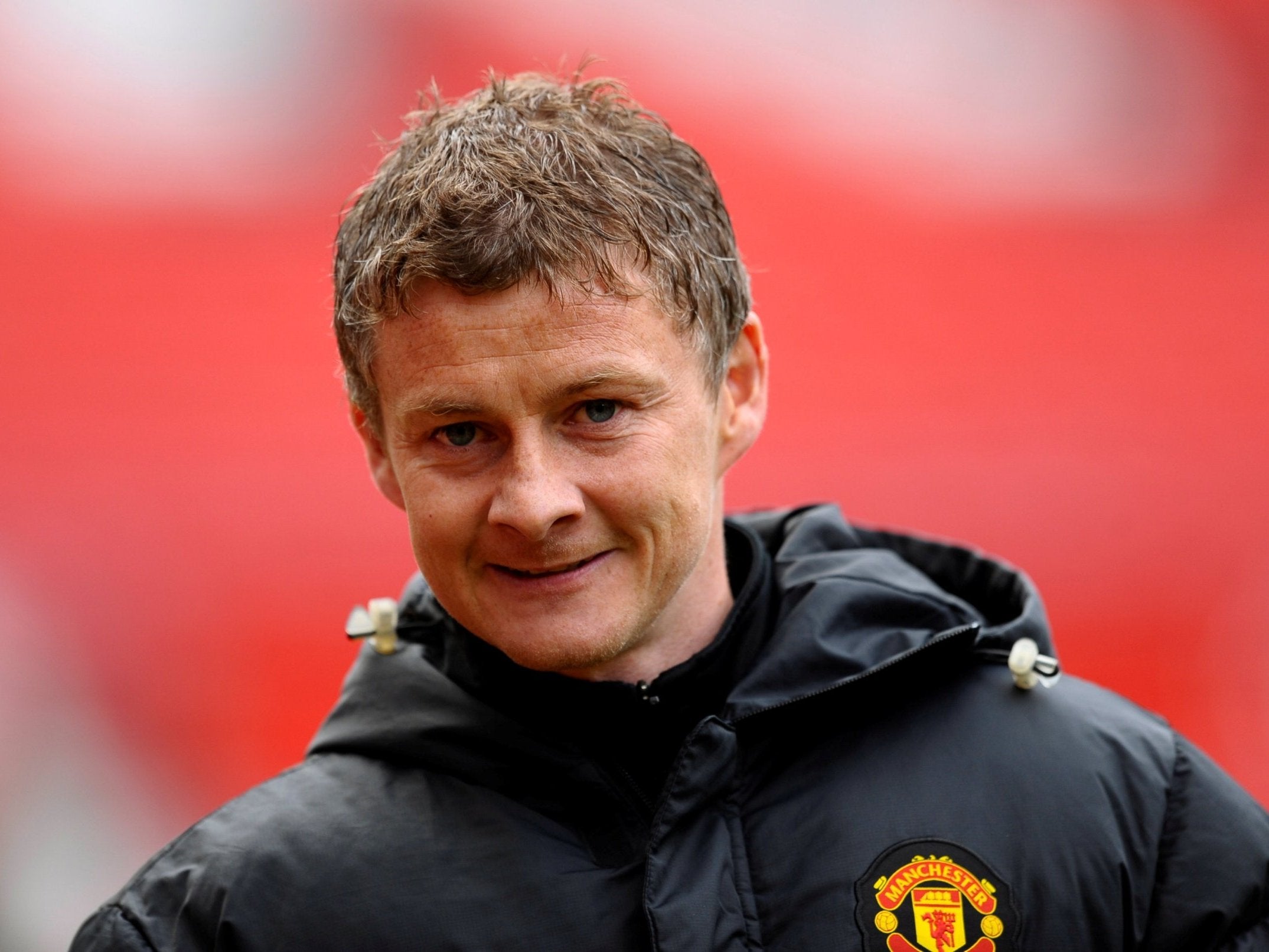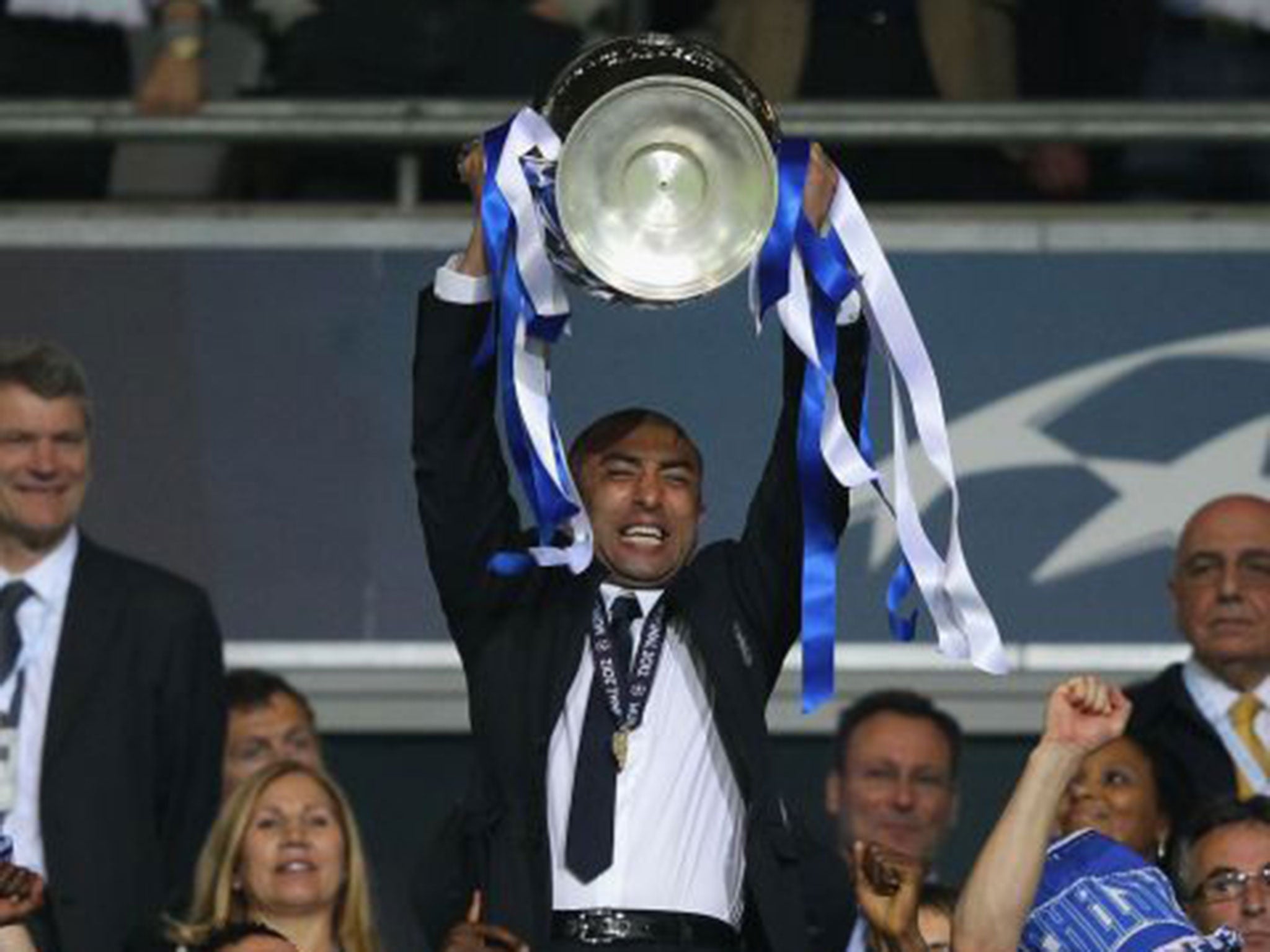History suggests that Ole Gunnar Solskjaer might succeed as Manchester United caretaker
Analysis: Sometimes just being different can be enough to motivate the players, writes Miguel Delaney, as happened when Roberto Di Matteo took charge at Chelsea


Manchester United know they're hoping for an idealised outcome with Ole Gunnar Solskjaer at the helm, but there are real precedents. Of the 40 managers to win the Champions League since 1955, as many as three of them were caretakers parachuted in to rescue a team from mid-season meltdown.
Even more relevantly, two of them were with English clubs, and one of those a club well familiar with the destructive effect Jose Mourinho can have.
That case in point was Roberto Di Matteo with Chelsea in 2012, who followed Tony Barton with Aston Villa in 1982 and Miguel Munoz with Real Madrid in 1960.
The best possible scenario for Manchester United this season is that Solskjaer’s emotional effect carries United through their last-16 tie against Paris Saint-Germain, enabling the side to build momentum from there on in.
Encouragingly for United, some of the past success were almost as much to do with the very role of a caretaker as much as the men in the job. Their appointments had been necessary because of the destructive effects of their predecessors, so subsequent progress was in large part down to just “facilitating” the players’ improved moods and putting in place a simple base they could work from.
Just being different can be enough, as the players feel free simply to play. It isn’t exactly a plan for the long-term but can be effective in the short-term. That was exactly the case with Di Matteo when he replaced the hugely unpopular Andre Villas-Boas at Chelsea, and Barton, who took over from disciplinarian Ron Saunders at Villa.
“Tony wasn’t at all like Ron,” Villa’s Allan Evans once said of their 1982 win. “Tony knew he could leave it to the players.”

Sure enough, they finished up with the European Cup. If that is a resoundingly best-case scenario, and maybe unlikely given the power of PSG, more relevant is the parallel with Kenny Dalglish at rivals Liverpool in 2011.
Just like Solskjaer, he was seen as the legendary “unity candidate” after a fractious period at the club. Dalglish did enough to get the job for another season and win their last silverware: the 2012 League Cup. It wasn’t spectacular, but was enough, and what was required. Garry Monk is another example, and a similar figure to Solskjaer, who made a job permanent at Swansea City.
If it is the success that of course makes these examples memorable, then we should not forget either the many, many discardable previous Premier League caretakers from Chris Hutchings at Derby County to Ricky Sbragia at Sunderland. The latter actually advocated the club appoint a bigger name. Many times the sense of drift is just too great.
It is, fittingly, again a post-Mourinho that best displays this. It was also his last job, and one so relevant to right now. The Portuguese left Chelsea 2015-16 in a very similar situation to United, down to a fed-up squad and a Champions League tie against PSG. Not even a figure as popular as Guus Hiddink could save it. It just became one of those nothing seasons.
That is the likeliest scenario for most caretakers, but United at least have the precedent to hope for better.
Join our commenting forum
Join thought-provoking conversations, follow other Independent readers and see their replies
Comments